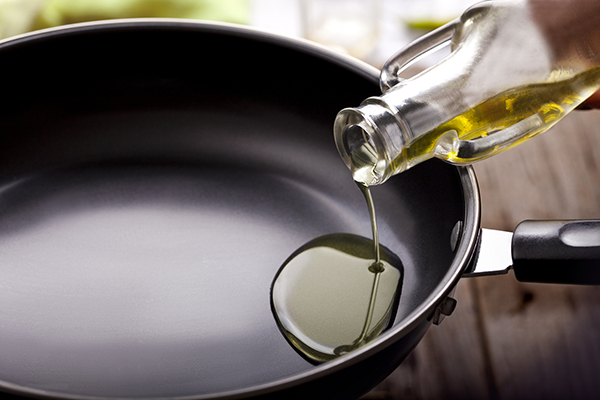



| By Dr. Ronald Hoffman

We’ve long been propagandized about the imperative to switch from saturated fat to plant-derived oils. I’ve pushed back on that shaky proposition in an article entitled “The Weak Case Against Saturated Fats”.
But just as the old shibboleth about animal fat is being debunked, a new dogma is emerging: That vegetable oils are the most pernicious feature of Western diets, and that they are chiefly responsible for the wave of degenerative diseases that afflict industrialized countries—and, therefore, they should be expunged from our diets.
Hyperbolic headlines like these abound:
“Dr. Mark Hyman: Why Vegetable Oils Should Not Be Part of Your Diet”
“The Ugly Truth About Vegetable Oils (and why they should be avoided)”
There are so many of these articles and social media posts, that it’s become kind of a cliché—a litmus test of nutritional virtue.
On the other hand, posts like this are now appearing: “Scientists debunk claims of seed oil health risks”
Harvard researchers report: “While the internet may be full of posts stating that seed oils such as canola and soy are ‘toxic,’ scientific evidence does not support these claims.”
I’m an equal-opportunity debunker, so, in the spirit of Intelligent Medicine, I decided to take a closer look at this controversy. And what I found doesn’t hew as closely to the “party line” of many diet gurus.
Admittedly, there’s a strong rationale for questioning the nutritional desirability of all those seed oils:
So what does the latest science say?
Since linoleic acid (LA) is the most abundant Omega-6 in seed oils, we might expect that higher blood levels of LA would be associated with cardiovascular risk. (We already know that higher levels of the Omega-3s, EPA and DHA, are protective). But that’s not what was found in a 2014 study (“Circulating omega-6 polyunsaturated fatty acids and total and cause-specific mortality: the Cardiovascular Health Study”); in fact, higher levels of LA were found to be associated with lower risk of cardiac events and death from any cause:
“There was little evidence of associations of n-6 PUFA with total mortality . . . Evaluating both n-6 and n-3 PUFA, lowest risk was evident with highest levels of both.”
A Cochrane Review in 2015 found “insufficient evidence to show an effect of increased or decreased omega 6 intake on CVD risk factors such as blood lipids and blood pressure.”
I think it’s going to be difficult to sort out these seemingly irreconcilable positions. On the one hand, Since Omega-6 fatty acids are ubiquitous in ultra-processed foods, it might just be that its prevalence in diet records or in blood samples is simply a marker for people who eat more junk, thus incriminating it in some studies as the culprit, when it’s really just a matter of subjects’ overall bad diets.
Also, it’s undeniable that there are some health benefits to a plant-based diet, which is of necessity skewed toward Omega-6s; healthy vegetarians who aren’t eating lots of fried or processed foods, but who consume lots of heart-healthy nuts and seeds, rich in linoleic acid, don’t seem to be harmed by their disproportionate intake of Omega-6s.
Popular podcaster Dr. Andrew Huberman, to whom I often listen, offered his take on seed oils on his first AMA episode on 11/2/2022. as summarized in a post on Seed Oil Scout, an app designed to enable “the community of conscious diners to map out restaurants that care for their customers by cooking with healthy oils.”
Dr. Huberman concludes there is scanty evidence in major peer-reviewed clinical trials that seed oils, per se, are as harmful as many people are claiming them to be; however he does acknowledge their excess consumption may be contributing to health problems. They are ubiquitous, cheap, and calorically dense.
“In the last two decades and in particular in the last 10 years the consumption of seed oils has gone up dramatically, that is true, and that the caloric content of seed oils may in some ways, perhaps in many ways [may] be contributing to the so called ‘obesity epidemic’”
I think that a prohibition of Omega-6s is a bridge too far. I’ll leave you with some ways to minimize their harms, while consuming a diverse diet:
Though we think of declining estrogen as the hallmark of menopause, it's actually common for…

Up to 12 percent of Americans have ulcers at some point in life. Peptic ulcers…
Gallbladder disease is a modern illness. An estimated 20 million Americans have gallbladder disease. The…

There’s more to GI health than whether or not to take an acid-blocker. All too…

In the latest attempt to remove “stigma” from medical terminology, liver specialists have come up…

Q: My husband’s high sensitivity C-reactive protein (hs-CRP) is 1.62 and his homocysteine is 13.1. If…

Banish the Bloat: Leyla Weighs In with Tips and Insights

Our virtual voicemail is open 24/7, so there's no need to wait to submit your questions for Dr. Hoffman. Leave a message, and you may hear your question featured on the Intelligent Medicine radio program!